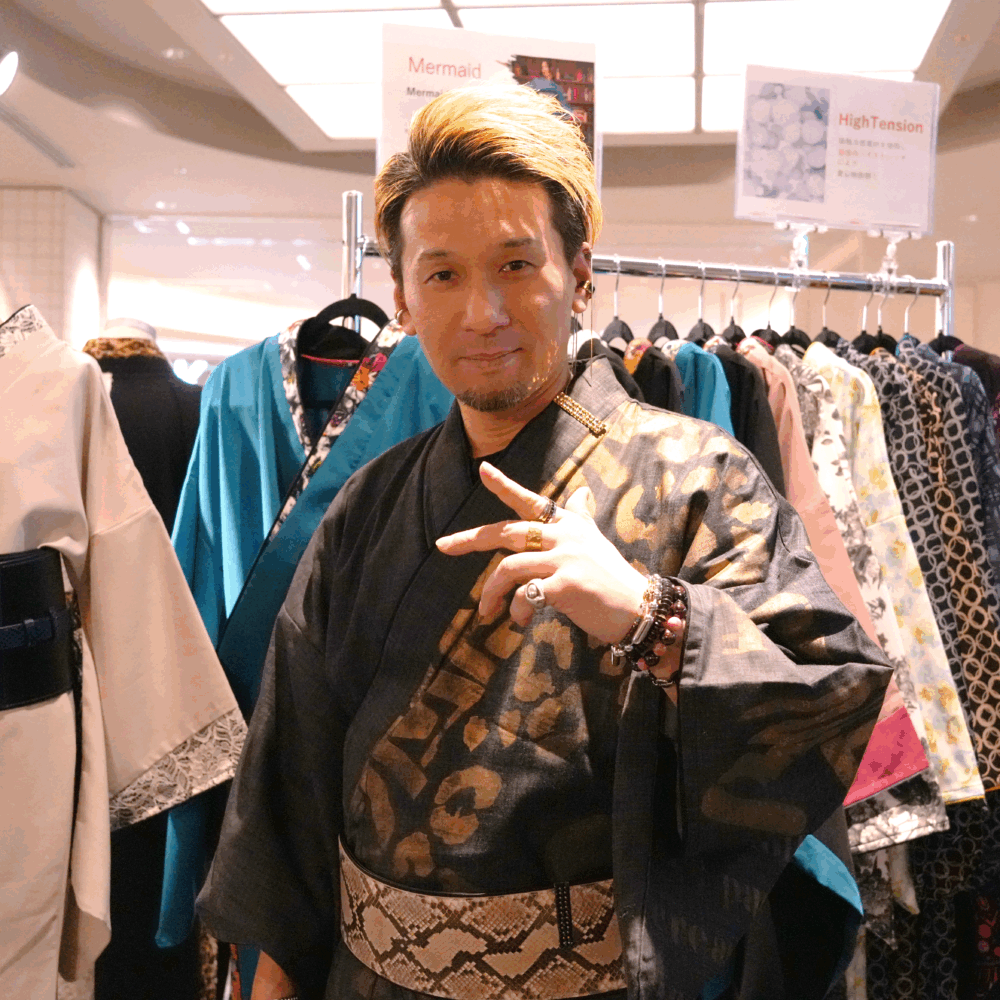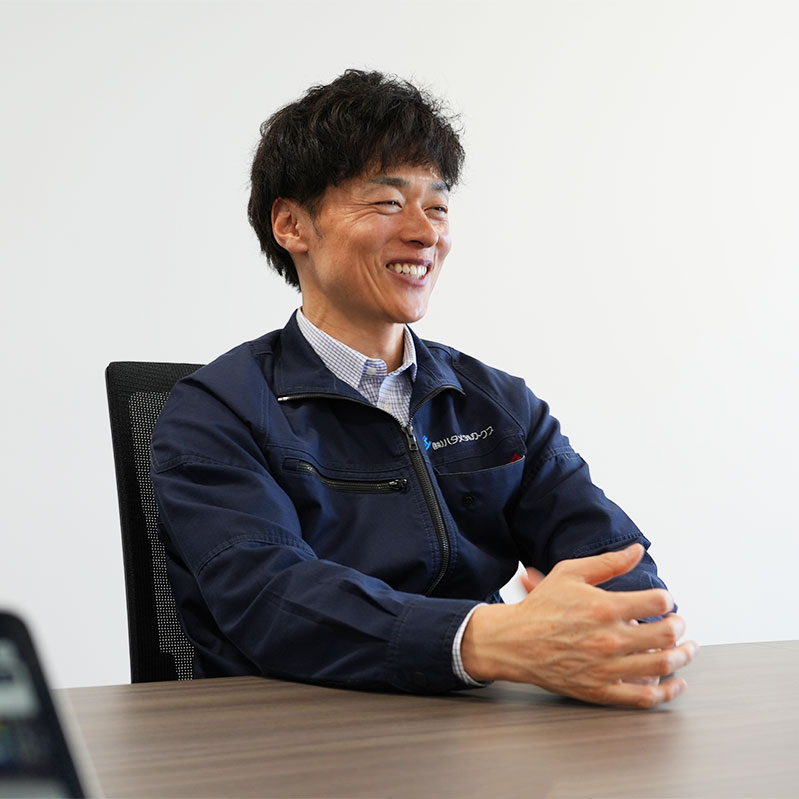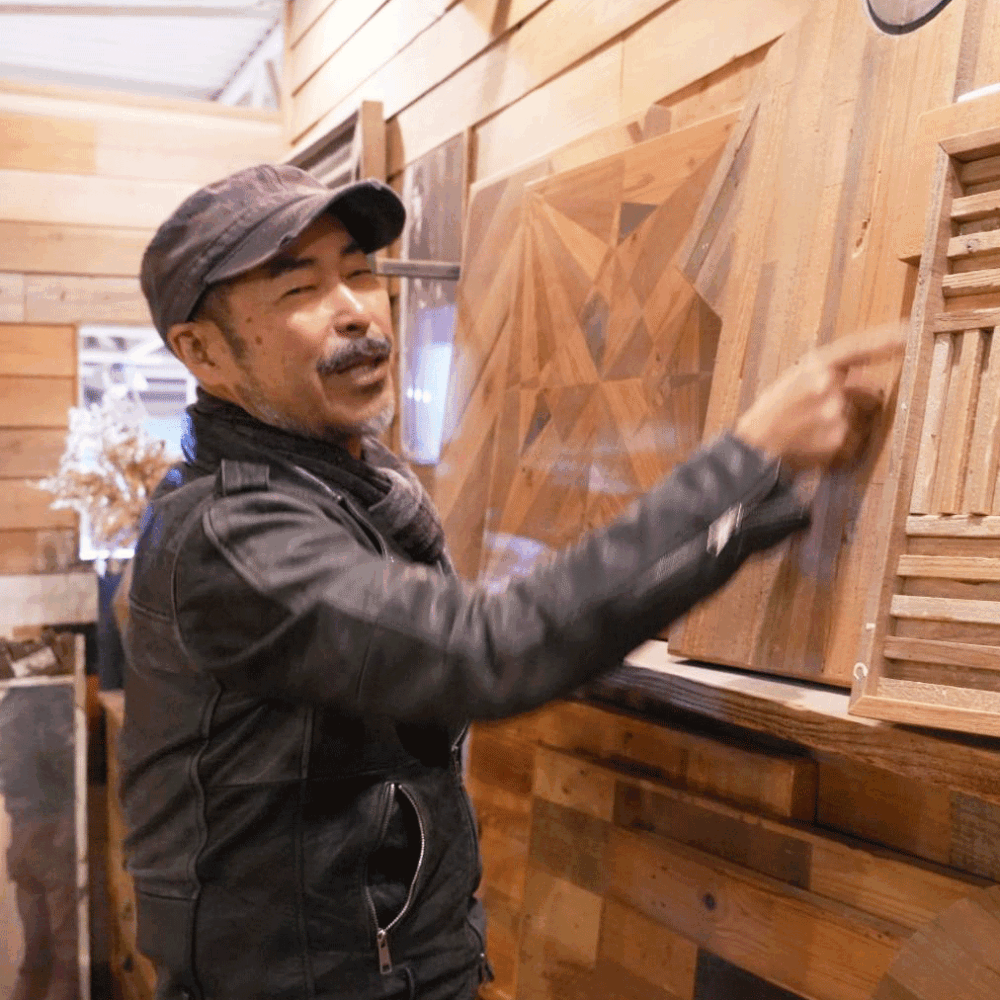Redefining Washi: Creating Value by Merging Tradition and Creativity
- Paper & paper products manufacturing
- Unique Products & Services
- Historic Products & Services
- Japanese Traditional Technology
- Creative
Osaka
Washi has long been a traditional material deeply embedded in Japanese culture and daily life.Historically, it has been used for various purposes, such as shoji screens in Japanese homes, fans for creating a cooling breeze, and school graduation certificates. However, the washi industry is now facing challenges such as a decline in manufacturers and a decrease in demand. Amidst these difficulties, Ooue Co., Ltd. is stepping up to expand the potential of washi and create new value.
Headquartered in Tennoji, Osaka, Ooue is a long-established company with a proud history of 76 years. It started in 1948 as a wholesale dealer of washi and has since expanded its business to include a wide range of products, such as stationery, interior items, and packaging development.
In this interview, we spoke with Yohei Ooue, the fourth-generation president of the company, to learn about Ooue’s journey, his passion for washi, and his vision for the future.
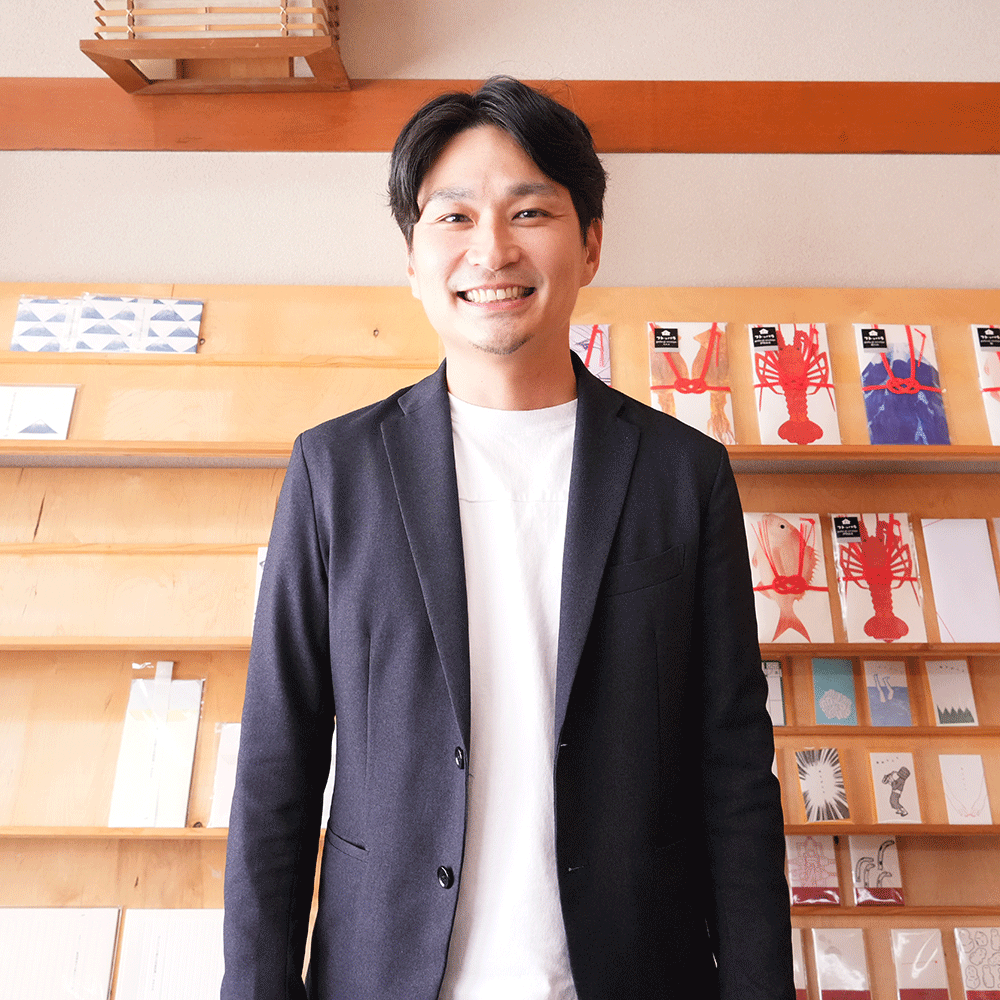
PROTAGONIST
Yohei Oouepresident
From Wholesale to Manufacturing and Sales
Ooue Co., Ltd. is a company that specializes in both sourcing premium washi paper from across Japan, including Echizen Washi from Fukui and Mino Washi from Gifu, and delivering it to clients, as well as manufacturing and selling its own washi products.
“It might seem plain at first glance, but wholesalers play a vital role in distribution. By reliably delivering washi to customers when they need it, we’ve earned their trust. Recently, our main business has shifted to manufacturing and selling washi, as well as providing OEM services for business packaging products,” says Yohei Ooue.
The company offers over 300 varieties of washi, catering to a wide range of uses, from stationery like envelopes and letter paper to food packaging, as well as religious items like goshuincho (stamp books) and talismans. Ooue’s strength lies in its deep understanding of the unique characteristics of washi from each region and its ability to propose the best solutions tailored to client needs. Regarding the current challenges in washi distribution, Yohei Ooue shares his thoughts:
“With advancements in logistics, it’s now easier for clients to purchase directly from manufacturers. In the past, it could take days for products to arrive, but today, most items are delivered within a day. Enhancing the value we provide as a wholesaler is a significant challenge. Rather than being just an intermediary, we aim to establish a unique position as a company that exceeds client expectations by proposing new ‘possibilities of washi.'”
With 76 years of experience as a wholesaler and unparalleled expertise in washi, Ooue Co., Ltd. continues to earn the trust of its clients.
From the Printing Industry and Overseas Experience to Continuing the Family Business
Founded in 1948, Ooue Co., Ltd. began its journey under the leadership of its founder, Jōtarō Ooue, the grandfather of current president Yohei Ooue. Jōtarō, who had previously worked as a head clerk at Sakurai Tomizō Shōten, became independent and started selling handmade washi paper in Fukui. During this time, he partnered with his younger brother Kinzō’s second son, Tsutomu, as a co-manager, formalizing the relationship through adoption. Initially reluctant due to his aspirations in agriculture, Tsutomu eventually joined the paper industry under Jōtarō’s persuasion. Shortly after the war, the business began with itinerant sales of washi paper. However, in 1957, Jōtarō passed away unexpectedly, leaving Tsutomu, then just 29 years old, to take over the business. Despite the challenges, he managed to stabilize the company and build trust among clients.
In 1991, Yoshihiro Ooue became the company’s president. Despite the rising trend of business closures in the washi industry due to digitization and economic downturns, Yoshihiro worked tirelessly to sustain the company’s role as an intermediary agent. Since 2022, Yohei Ooue has been leading the company as the fourth-generation president. Before joining the family business, Yohei started his career at a printing company and gained valuable experience working for overseas firms. These experiences provided him with unique insights and knowledge that have become instrumental in bringing innovation to the modern washi industry. His decision to take over the family business was significantly influenced by the COVID-19 pandemic.
“During the pandemic, our sales dropped dramatically. My father sought my advice, and I raised concerns about whether the traditional model of simply sourcing and reselling washi could remain viable. That was the first time we truly confronted the challenge of how to add value as an intermediary,” Yohei explains.
Previously, Ooue’s strength and value lay in always maintaining stock and offering rare types of washi that others couldn’t. However, with many manufacturers now capable of shipping nationwide within a day, the conventional distribution model became increasingly difficult to sustain. This realization led to a strategic shift towards business diversification and the creation of added value. It was during this transitional period that the business was passed from the third-generation president to Yohei.
Machine-Made Washi: High Volume, Low Margin
The washi handled by Ooue Co., Ltd. is 100% produced in domestic paper mills, although some of the raw materials may be sourced from overseas. The company primarily works with mills rooted in local communities across Japan. Traditional hand-made washi uses raw materials such as kōzo (mulberry), mitsumata, and gampi plants. The production process involves stripping the bark from the plant stems, boiling them to extract fibers, removing impurities in a step called “chiri-yori,” and then crafting the paper by hand. This traditional method is key to preserving the unique texture and quality of washi. However, the role of washi has undergone significant changes over time, with its usage declining rapidly around 30 years ago.
“As Westernization has progressed, opportunities to encounter washi products in daily life have decreased. Hand-made washi, crafted one sheet at a time, is inherently costly. High-grade washi, priced at thousands of yen per sheet, doesn’t align well with contemporary usage. We are now at a crossroads, reflecting on where washi should stand and how its charm can be conveyed in today’s world,” explains Yohei Ooue.
Machine-made washi, primarily using wood pulp as a raw material, mimics the texture of hand-made washi. By controlling the manufacturing speed, it’s possible to retain the subtle irregularities and texture characteristic of traditional washi. While it doesn’t require the intricate manual work of hand-made washi, it significantly enhances productivity while preserving a certain degree of washi’s distinctive qualities.
“In today’s world, it’s quite difficult to make a business out of handmade washi, which costs 10,000 yen per sheet. Instead, our current focus is on sourcing machine-made washi priced at 100 yen per sheet and wholesaling it at 120 or 130 yen. The challenge for us is how to convey the unique texture and value of washi within this model. Although the role of wholesalers is diminishing, we aim to go beyond being mere distributors and position ourselves as promoters of washi’s allure and innovators of its new applications,” says Ooue.
Machine-made washi finds uses in stationery such as envelopes, decorative paper, and letter sets, as well as in packaging for traditional Japanese sweets, sake labels, goshuincho (stamp books), and religious talismans.
Redefining Washi
オオウエでは、伝At Ooue Co., Ltd., efforts are underway to preserve the traditional culture of washi while creating new value that aligns with modern society and its needs—a mission described as “redefining washi.” When asked about the intent behind this initiative, Yohei Ooue shared his thoughts:
“The definition of washi is quite ambiguous overseas. People often ask me what constitutes ‘authentic washi.’ Is it limited to hand-made paper, or does machine-made paper also qualify? Drawing the line is challenging. At Ooue, we believe that establishing our own standards and promoting them as the ‘Ooue Standard’ is one approach. Washi is an incredibly lightweight, strong, and sustainable material. We aim to capitalize on these characteristics and continue proposing innovative ways to use it.”
As the first step in this redefinition, Ooue has begun developing products they had previously not explored, such as interior design items and wallpapers. Last year, the company collaborated with a Dutch interior designer to create washi-based products, including cushion covers, storage boxes, and lighting fixtures. By using washi as a substitute for leather or as a material for wallpaper, the possibilities for its applications are expanding even further.
Washi-den University and Wanomy
Washi-den University, a unique brand developed by Ooue Co., Ltd., was launched over a decade ago. Focused primarily on washi-based stationery, the brand was established by the company’s leadership at the time, who set their own pricing and created a dedicated distribution network. By avoiding direct competition with other companies and offering products with distinctive designs and illustrations, the brand has aimed to showcase the charm of washi.
At its inception, the brand benefited from trends such as the masking tape boom, with its charming stationery products selling rapidly, fueling its growth. While stationery is typically a high-volume, low-margin market subject to intense price competition, Ooue achieved notable success with the Washi-den University brand, serving as a trailblazer in the industry.
In addition, Ooue operates “Wanomy,” a platform that offers corporate clients tailored packaging solutions made with washi. The site supports customer branding and the design of packaging materials.
“The strength of B2B lies in the potential for repeat orders once a relationship is established. Partnering with printing companies and processing firms, we excel in providing clients with optimal packaging solutions. We deliver not only high-design packaging but also specific products like boxes and labels, ensuring we meet our clients’ needs. Moving forward, we’re also exploring shifts toward interior and lifestyle goods in small production runs, where profitability is more feasible,” says Yohei Ooue.
Enhancing the Value of Washi as Art
Ooue Co., Ltd. is placing a particular emphasis on international markets. Through exhibitions in Europe and collaborations with artists, the company is actively working to share the allure of washi overseas. Recently, they hosted an event inviting a Dutch designer to Tottori, a renowned washi production region, to experience the local manufacturing process firsthand.
“Even the local manufacturers were genuinely excited, saying things like, ‘This gets my creative juices flowing’ or ‘This is really interesting,’ just because a designer from abroad had come to visit. On the other hand, the designer was thrilled to witness Japanese craftsmanship and expressed how rewarding it was as a creator. Washi has great potential in the fields of interior design and art, such as in installations where the paper is suspended to create artistic expressions. Washi used in shoji screens and lighting fixtures is also highly appreciated in Europe for its unique texture. I hope to promote this further,” says Yohei Ooue.
In addition to these efforts, the company is leveraging social media to showcase its projects. Through their Instagram account “Yorai,” Ooue shares photos and videos highlighting the craftsmanship in production regions and their collaborative projects, bringing the appeal of washi to a wider audience.
“Opportunities for people overseas to see Japanese manufacturing sites are extremely rare. That’s why I think it’s important to use social media to visualize the techniques and stories behind washi production regions and create a system that connects supply with demand,” Ooue explains.
Ooue Co., Ltd. not only treats washi as a mere material, but also envisions a future that goes beyond tradition by creating new value both domestically and internationally, and matching supply with demand.
INFORMATION
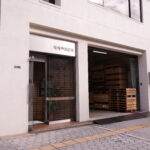
Ooue Co., Ltd.
We have been selling washi paper ever since our founding in 1948.
Washi, crafted with care in Japan’s rich natural environment, carries a warmth that is unique to handmade paper.
Its appearance varies depending on the production region, the blend of raw materials used, and the quality of the water.
Lightweight yet highly durable, washi also offers excellent moisture-regulating properties, making it a functional material.
Whether it is handcrafted washi, machine-made washi, or processed washi products, the form may change with the times, but its essence remains the same.
Together with the papermakers who continue to produce this remarkable material, we are constantly exploring new possibilities for washi.
- Founded in
- 1952/7/1
- No. of employees
- 7
- Website
- https://www.ooue.co.jp/
- Writer:
- GOOD JOB STORY 編集部





